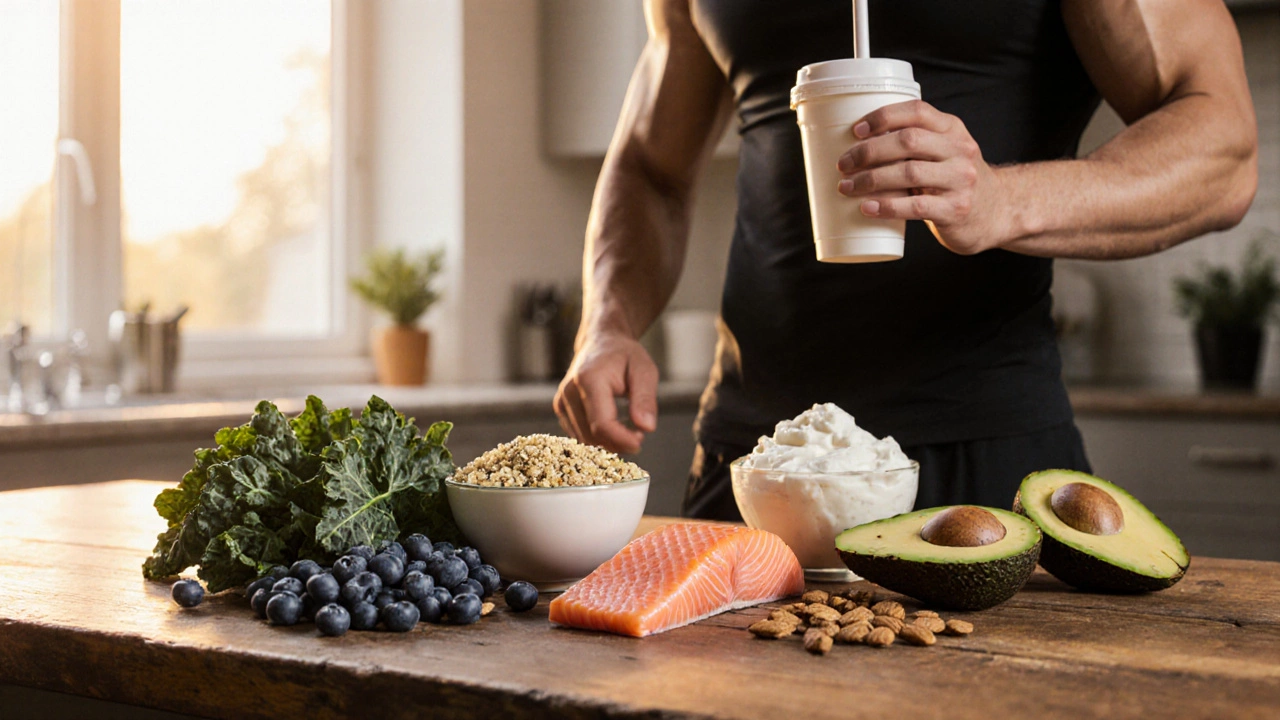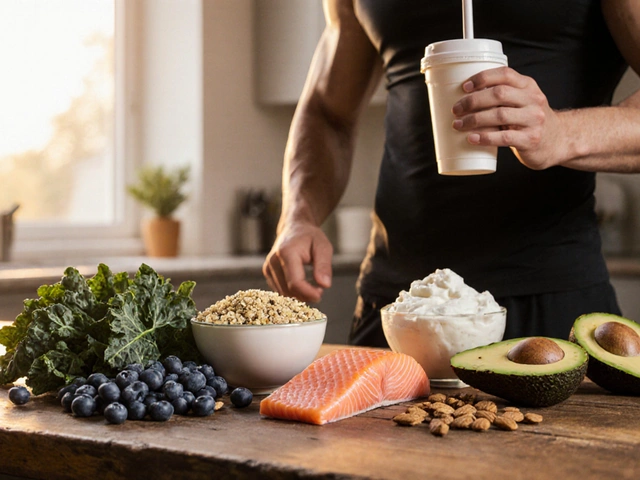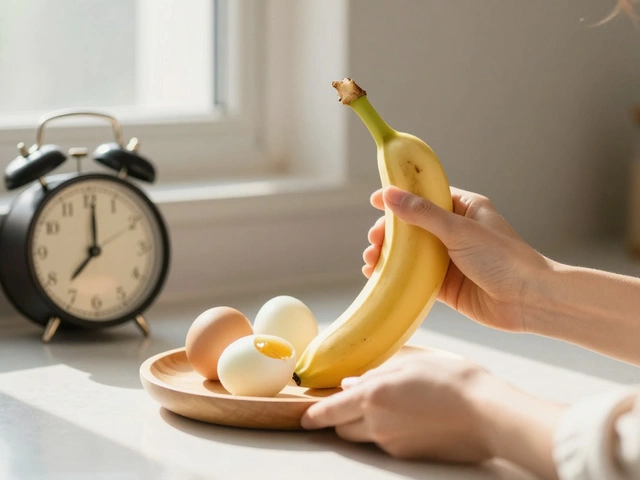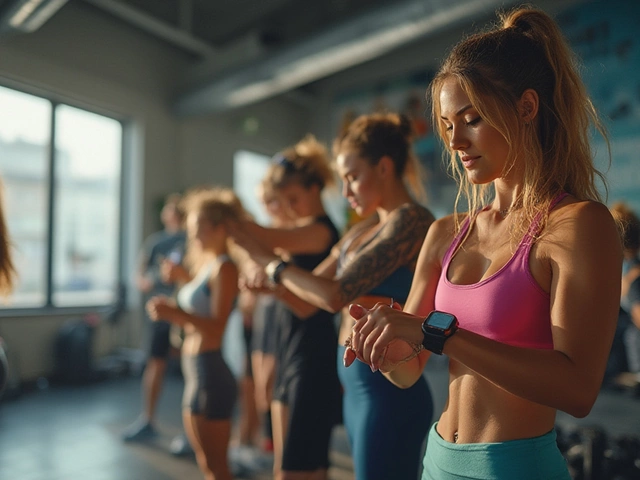7 Superfoods Every Fitness Buff Should Eat
Superfood Nutrition Calculator
Enter how much of each superfood you consume daily to see your nutrient totals and how they compare to fitness goals.
Input Your Superfood Servings
Input Your Superfood Servings
Nutrition Summary
| Nutrient | Amount | Recommended for Athletes | How You Did |
|---|---|---|---|
| Calories | 0 | 2,500-3,500 | |
| Protein (g) | 0 | 1.6-2.2g per kg body weight | |
| Fiber (g) | 0 | 30-40g | |
| Omega-3 (g) | 0 | 1.5-2g |
Ever wonder why some athletes always seem to bounce back faster, torch more calories, and stay injury‑free? The secret often lies in what they put on their plates. Below you’ll find the seven powerhouse foods that can turn an average diet into a performance‑fueling engine.
Key Takeaways
- Superfoods deliver outsized nutrients that support muscle repair, energy metabolism, and inflammation control.
- Each of the seven foods offers a unique blend of protein, healthy fats, fiber, and antioxidants.
- Simple meal ideas make it easy to add these foods to pre‑ and post‑workout nutrition.
- Knowing the nutrient profile helps you match foods to specific training goals.
- A balanced approach prevents over‑reliance on any single item while maximizing benefits.
These 7 superfoods can boost your performance, speed up recovery, and keep you feeling energized throughout the day.
What makes a food a superfood?
In nutrition circles, a superfood is defined as a food that provides an exceptional amount of vitamins, minerals, antioxidants, or other beneficial compounds per calorie. Superfoods are nutrient‑dense foods that supply a high concentration of phytonutrients, fiber, and essential fats while keeping calorie counts modest. For athletes, these qualities translate into faster muscle repair, improved endurance, and better immune resilience.
1. Blueberries - Tiny Antioxidant Bombs
Blueberries are a low‑calorie berry packed with anthocyanins, a class of antioxidants that combat oxidative stress. One cup delivers roughly 4 g of fiber and 24 mg of vitamin C. For runners and cyclists, the anti‑inflammatory properties help reduce muscle soreness after long rides. Toss them into oatmeal, blend into a post‑workout smoothie, or snack on them straight from the freezer.
2. Kale - The Green Powerhouse
Kale is a cruciferous leafy vegetable rich in vitamin K, calcium, and lutein. A single cup of raw kale supplies more than 700 IU of vitamin A and 150 mg of calcium, both crucial for bone strength. Its high fiber content stabilizes blood‑sugar spikes, keeping energy levels steady during strength‑training sessions. Saute it with garlic, blend it into a green shake, or add raw strips to a sandwich.
3. Salmon - Omega‑3 Rich Protein
Salmon provides high‑quality protein and the longest chain omega‑3 fatty acids (EPA and DHA) among common foods. A 150‑g fillet contains about 34 g of protein and 2 g of omega‑3s, which support joint lubrication and reduce inflammation. For weight‑lifters, this helps preserve lean mass while shortening recovery time. Grill, bake, or poach it, and pair with a squeeze of lemon for extra flavor.
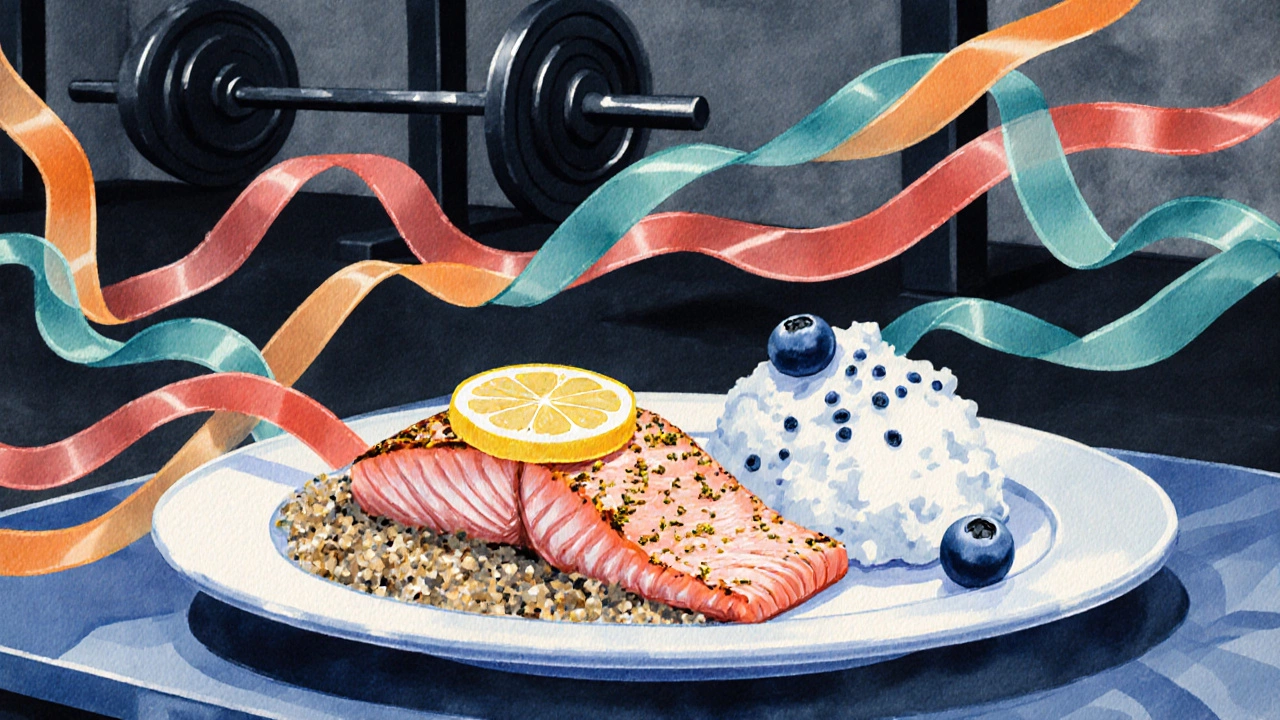
4. Quinoa - Complete Plant Protein
Quinoa is a gluten‑free seed that delivers all nine essential amino acids, making it a complete protein source for vegans. One cup cooked provides 8 g of protein, 5 g of fiber, and a healthy dose of magnesium, which aids muscle contraction and energy production. Use it as a base for bowls, swap it for rice, or add it to veggie patties.
5. Greek Yogurt - Probiotic‑Packed Power
Greek yogurt contains twice the protein of regular yogurt, plus live cultures that support gut health. A typical 200‑g serving offers 20 g of protein and 10 g of calcium. The probiotics improve nutrient absorption, which is vital for athletes who need every gram of protein. Mix with berries, drizzle honey, or use as a base for dips.
6. Almonds - Crunchy Healthy Fats
Almonds are a nut loaded with monounsaturated fats, vitamin E, and magnesium. One ounce (about 23 nuts) supplies 6 g of protein, 14 g of fat, and 80 mg of magnesium-key for energy metabolism and muscle function. Their satiety factor keeps cravings at bay, making them an ideal pre‑run snack. Eat raw, roast with spices, or blend into almond butter.
7. Avocado - Creamy Source of Potassium
Avocado offers heart‑healthy monounsaturated fat, potassium, and fiber in a buttery texture. Half an avocado delivers roughly 7 g of fiber and 350 mg of potassium, which helps prevent muscle cramps during high‑intensity workouts. Mash onto toast, cube into salads, or blend into a post‑cardio smoothie for a creamier mouthfeel.
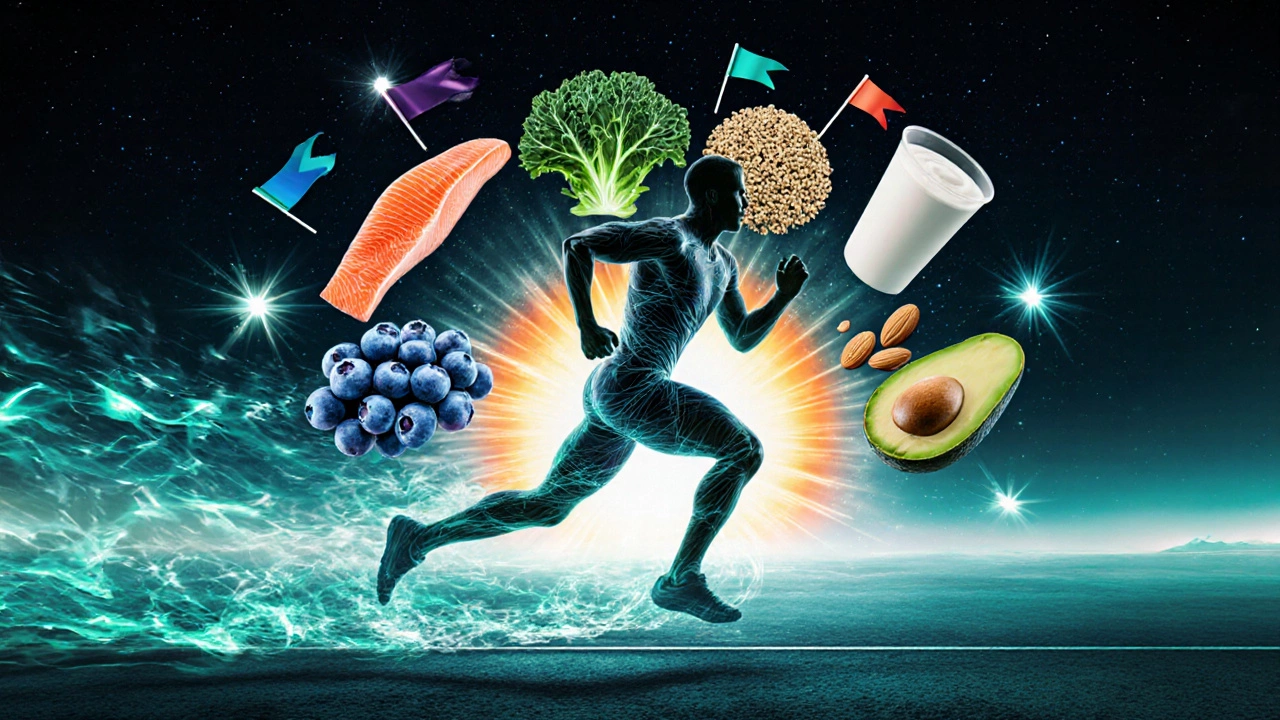
Nutrition Snapshot: Quick Comparison
| Food | Calories | Protein (g) | Fiber (g) | Omega‑3 (g) | Antioxidants |
|---|---|---|---|---|---|
| Blueberries (1 cup) | 84 | 1 | 4 | 0.02 | High (anthocyanins) |
| Kale (1 cup raw) | 33 | 2.9 | 1.3 | 0 | High (vitamins A, C, K) |
| Salmon (150 g) | 280 | 34 | 0 | 2.0 | Moderate (selenium) |
| Quinoa (1 cup cooked) | 222 | 8 | 5 | 0 | Moderate (flavonoids) |
| Greek yogurt (200 g) | 130 | 20 | 0 | 0 | Low (live cultures) |
| Almonds (1 oz) | 164 | 6 | 3.5 | 0 | Moderate (vitamin E) |
| Avocado (½ medium) | 120 | 1.5 | 5 | 0 | Low (polyphenols) |
Practical Ways to Add These Superfoods to Your Training Diet
- Pre‑workout fuel: Blend blueberries, kale, and almond milk into a 200‑ml shake 30 minutes before a cardio session.
- Post‑workout repair: Combine Greek yogurt, quinoa, and a drizzle of honey for a high‑protein bowl within 45 minutes of finishing strength training.
- Snack on‑the‑go: Pack a small container of mixed almonds and a half‑avocado sliced with a pinch of sea salt.
- Meal prep basics: Grill a batch of salmon on Sunday, portion into salads topped with kale, avocado, and a squeeze of lemon for the week.
Common Myths and Pitfalls
Many people assume that “superfood” means you can eat unlimited amounts without consequences. In reality, portion control matters. For example, almonds are calorie‑dense; a handful is enough to reap benefits without sabotaging a calorie‑restricted plan. Likewise, salmon’s omega‑3 content can become excessive if you rely on it daily-mix with plant‑based sources like chia seeds for variety.
Another myth: superfoods alone replace a balanced diet. They’re supplements, not substitutes. Pair them with complex carbs (sweet potatoes, brown rice) and quality protein sources to meet total macro goals.
Quick Checklist for Athletes
- Include at least three of the seven foods in your weekly meal plan.
- Rotate protein sources: salmon, Greek yogurt, quinoa.
- Balance fats: almonds and avocado for steady energy.
- Monitor portion sizes to stay within your calorie targets.
- Combine with whole‑grain carbs for optimal glycogen replenishment.
Why are antioxidants important for athletes?
Intense exercise generates free radicals that can damage muscle cells. Antioxidants neutralize these radicals, reducing inflammation and speeding up recovery, which means you can train more often with less soreness.
Can I eat all seven superfoods every day?
While there’s no harm in daily consumption, variety is key. Rotating foods prevents nutrient excess (like too many calories from almonds) and keeps meals interesting.
What’s the best time to eat salmon for muscle growth?
Consume salmon within the post‑workout window (30‑60 minutes after training). The protein supports muscle repair, while omega‑3s aid inflammation control.
Are frozen blueberries as good as fresh?
Yes. Frozen berries are flash‑frozen at peak ripeness, preserving most of the antioxidants and fiber. They’re also handy for quick smoothies.
How much quinoa should I eat to meet my protein needs?
One cup of cooked quinoa provides about 8 g of protein. Pair it with a protein‑rich food like Greek yogurt or salmon to reach the 20‑30 g target for post‑workout meals.
Is avocado high in carbs?
No. Half an avocado contains fewer than 2 g of carbs, making it ideal for low‑carb or keto‑oriented athletes who still need healthy fats.
Do I need to take a probiotic supplement if I eat Greek yogurt?
Greek yogurt already delivers live cultures, so most people get enough probiotics from a daily serving. Supplement only if you have specific gut issues.
Incorporating these seven superfoods isn’t about perfection-it’s about consistent, smart choices that fuel your body for the next rep, mile, or set. Start small, track how you feel, and let the results speak for themselves.
